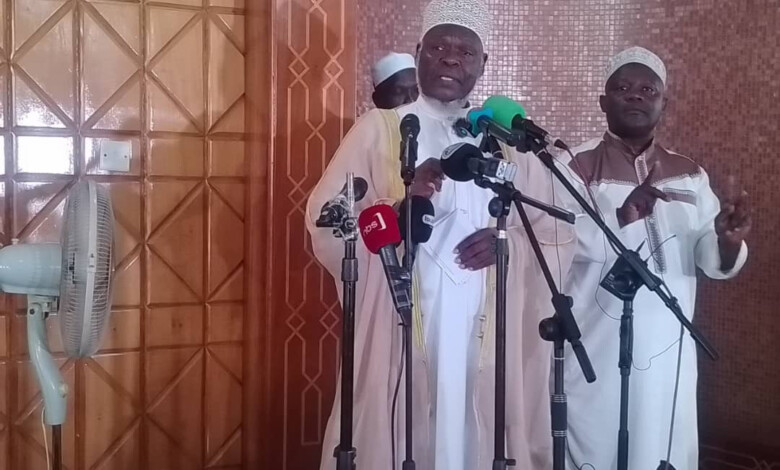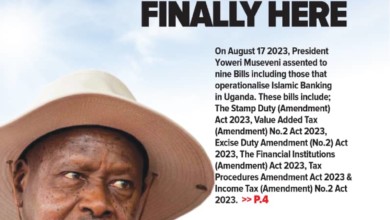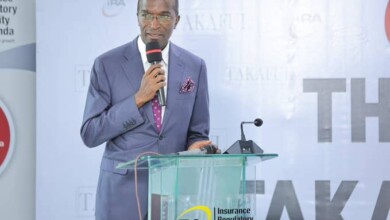Inside the Mufti–UBHA Hajj visa dispute

By Jafar Mugera
In a no-holds-barred Eid al-Adhuha speech, the Mufti of Uganda, Sheikh Shaban Ramathan Mubaje, sparked a storm by accusing the Uganda Bureau of Hajj Affairs (UBHA) of corruption—allegations that have pitted him against the bureau’s leadership and may explain why many Ugandan pilgrims were denied Hajj visas.
UBHA is the umbrella body for all registered Hajj service companies in Uganda, officially recognized by both the Ugandan and Saudi Arabian governments. It is tasked with coordinating the annual Islamic pilgrimage to Makkah.
In a strongly worded address delivered at the National Mosque in Old Kampala, the seat of Uganda Muslim Supreme Council (UMSC), Sheikh Mubaje, accused UBHA of fraud, abuse of trust, and deliberate sabotage of Muslim pilgrims’ Hajj aspirations.
“The leadership of UBHA diverted the visas meant for Ugandan pilgrims and sold them to non-Ugandans. We have proof of this. It has been happening since last year,” Mubaje said.
Mubaje’s remarks came against a backdrop of frustration and heartbreak for over 200 Ugandan Muslims who were left stranded after failing to secure visas for this year’s Hajj pilgrimage. Despite having completed all preparations, many received the devastating news just hours before their scheduled flights to Makkah: the electronic portal for Hajj visa issuance had closed before their documents were processed.
Among the affected were beneficiaries of President Yoweri Museveni’s Hajj sponsorship scheme. They had gathered at the Office of the Prime Minister (OPM) conference hall in Kampala, where officials from the President’s office had met them, distributed travel logistics, and handed over a $500 stipend each from the President.
When the news broke on May 27, the mood became chaotic. Angry and disillusioned, the pilgrims lashed out at several Hajj services companies, accusing them of mismanaging the entire process and dashing their dreams of fulfilling a once-in-a-lifetime religious obligation.
“It is unfortunate that some of them were not able to perform the Hajj. This is as a result of the malpractice and corruption in the so-called Hajj bureau,” Mubaje said.
$1,000 Challenge
Mubaje went on to ask Museveni to institute an investigation into the operations of UBHA. Addressing the Ugandan pilgrims in Minah near Makkah, on June 7, Sheikh Zakariya Kyewalyanga, the UBHA chairperson, acknowledged logistical challenges but challenged the Mufti to show proof that visas meant for Ugandans were sold to non-Ugandans.
“For each non-Ugandan who benefitted from visas meant for Ugandans he [the Mufti] produces, I will give him $1,000,” Kyewalyanga declared, turning the controversy into a high stakes dare.
He also questioned the integrity of the President’s Hajj scheme, hinting at internal contradictions within UMSC.
“The President’s Hajj scheme was meant for Imams, but the majority of the beneficiaries with us in this tent are not Imams,” he said pointedly.
According to Kyewalyanga, UBHA did not directly manage the Museveni-sponsored pilgrims. Instead, the beneficiaries had registered through private companies of their choice, and UBHA only got involved during the visa processing stage.
Well-placed sources told this publication that despite Kyewalyanga’s denials, signs of abuse of trust persist. For instance, last year, dozens of Ugandan pilgrims were denied clearance by Saudi authorities after Libyan and Congolese passports were found concealed in a box meant for Ugandan travel documents at the Ministry of Hajj and Umrah. It reportedly took Kyewalyanga’s personal intervention to clarify the situation before the Ugandans were allowed to exit Makkah.
Battle for control?
Beneath the volley of accusations lies what some insiders describe as a power struggle over control of the Hajj and Umrah services sector—a multibillion -shilling religious industry. In 2022, UMSC initiated a controversial proposal to bring all 54 registered Hajj and Umrah companies under its control.
Sources close to the matter say Mufti Mubaje personally discussed the proposal with Museveni, warning that the laissez-faire environment in which these firms operate poses potential risks—including exploitation and national security concerns.
UMSC even went as far as signing a cooperation agreement with Saudi authorities, hoping to formalise its oversight of the pilgrimage process. However, the anticipated support from the Ugandan government did not materialise, leaving the council’s ambitions in limbo.
Players in the sector who spoke to The Friday Call described the idea of transferring UBHA’s role to UMSC as “a wild dream”—a move that may prove difficult to implement given the entrenched interests of the various players.
Late last year, President Museveni met proprietors of Hajj and Umrah firms following the arrest of two Ugandan women who had used Umrah visas to smuggle drugs into Saudi Arabia. The meeting resolved that the previously unregulated Umrah sector be brought under the oversight of UBHA.
Uganda’s ambassador to Saudi Arabia, Isaac Biruma Sebulime, said that while the bureau is still needed, there are systemic inefficiencies and mismanagement that have to be addressed.
“We still need the Bureau to continue its operations, but transparency must be non-negotiable,” Sebulime said on June 7.






